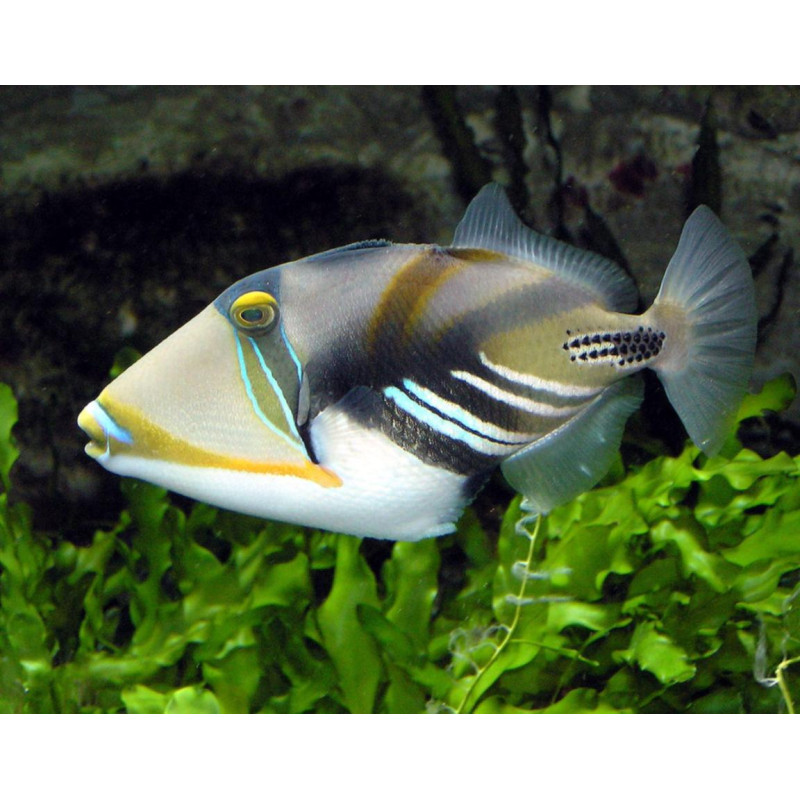More info
Rhinecanthus aculeatus - Picasso Triggerfish
Common Name: Picasso Triggerfish, Lagoon Triggerfish, Blue-lined Triggerfish
Scientific Name: Rhinecanthus aculeatus
Order: Tetraodontiformes — Family: Balistidae (Triggerfish)
Geographical Distribution: Indo-Pacific region — from the Red Sea and East African coast to Hawaii, southern Japan, Australia, and French Polynesia.
Life Expectancy: Up to 10 years in well-maintained aquariums
Maximum Adult Size: Up to 30 cm (12 inches)
pH: 8.1 to 8.4 — Water Hardness: 8 to 12 dKH
Temperature: 24°C to 28°C (75°F to 82°F)
Minimum Aquarium Volume: 400 liters (approximately 105 gallons)
Reef Safe Compatibility: No. Known to nip at corals and invertebrates.
Behavior and Compatibility:
A territorial and aggressive species, especially toward smaller fish or those of similar shape. Not suitable for reef tanks with invertebrates due to its tendency to attack them. Best kept in fish-only marine aquariums. Can cohabit with other robust and aggressive fish if introduced simultaneously and given enough space.
Diet:
Carnivorous. In the wild, feeds on mollusks, crustaceans, sea urchins, and other invertebrates. In captivity, provide a varied diet including shrimp, mussels, squid, fish meat, and high-quality prepared carnivore foods. Hard foods are important to help wear down their continuously growing teeth.
Reproduction:
Oviparous. Rarely bred in captivity due to aggression and specific requirements. In the wild, they form pairs during spawning and exhibit courtship and territorial defense behaviors.
Sexual Dimorphism:
No reliably visible sexual dimorphism. Adult males may display slightly more intense coloration.
Natural Habitat and Biotope:
Inhabits coral reefs and coastal lagoons, usually found in shallow waters between 1 and 20 meters deep. Prefers sandy substrates with crevices or rocky areas for shelter.
Etymology:
The genus name Rhinecanthus derives from the Greek words “rhinos” (nose) and “akantha” (thorn), referring to the shape of the snout and the dorsal spine. The species name aculeatus means “spiny” in Latin, referencing the defensive spine on the back.


